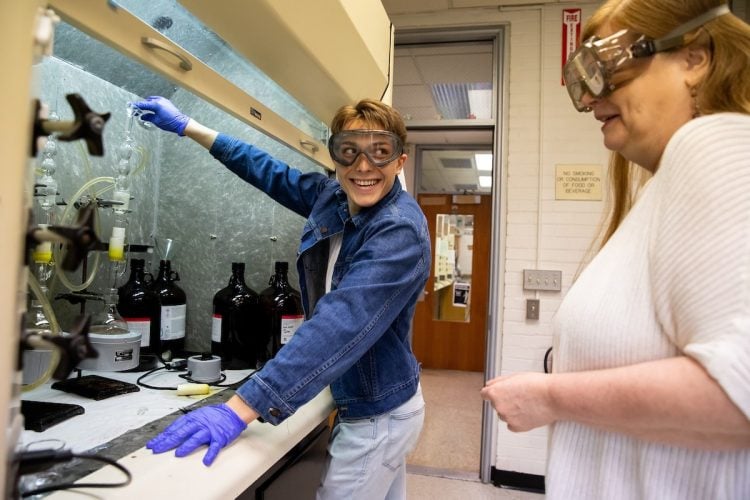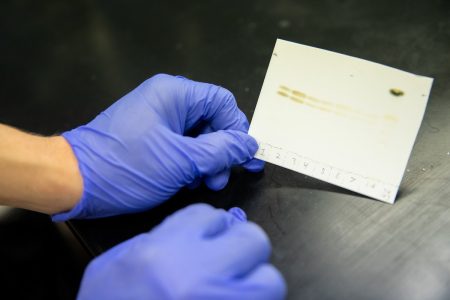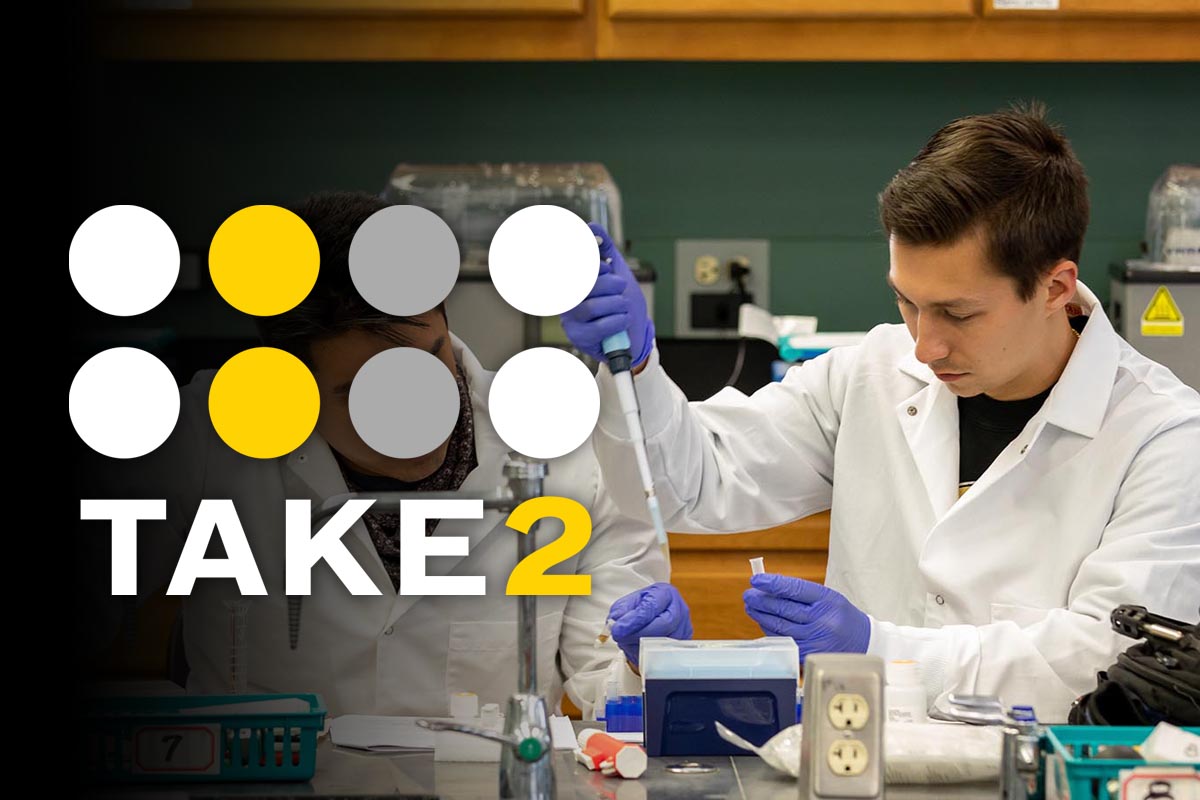Giving chemistry a little TLC: Summer Research project examines chemical purity of chamomile

Darius Chernitsky and professor Ann Fabirkiewicz run a sample through a soxhlet extractor
Are you paying too much for your chamomile tea or essential oils? A Summer Research project by Darius Chernitsky ’20 may help you find out.
Chernitsky has partnered with Ann Fabirkiewicz, the Charles A. Dana Professor of Chemistry and Natural Sciences and Mathematics Division Head, to test the purity of several popular chamomile products. Chamomile is classified by the FDA as a nutritional supplement. But because it is not considered a food or drug, there is little regulatory oversight of its production, meaning quality can differ between brands.
“Chamomile is a pretty well-known herb, so we’re developing techniques to test the purity of several samples and look at how we can do similar tests on other products as well,” Chernitsky said. “We don’t really expect to find much contamination in our chamomile samples because it’s so common, but it is a possibility.”

Chernitsky examines one of the colored stains from a sample
For their lab tests, Chernitsky and Fabirkiewicz are using thin layer chromatography (TLC) fingerprinting to compare different kinds of chamomile essential oil products for purity. They are also examining how the colored stains they get react to certain lighting and distillation times, or when they are influenced by other chemicals like Acetaldehyde and Iodine.
This isn’t the first time Chernitsky and Fabirkiewicz have teamed up for a project involving TLC. As a sophomore, Charnitsky used the process to catalogue how different functional groups reacted to Acetaldehyde stains using pure chemicals and examine how they reacted over time.
Chernitsky has found both projects to be extremely helpful stepping stones towards his career goal of becoming a pharmaceutical researcher.
“I think Randolph is a very unique place in that it’s small enough that if you want opportunities for hands-on research, you can get them,” Chernitsky said. “In Summer Research, you have to figure things out yourself, you make mistakes, and you learn from them and incorporate them into your method. That’s been a really invaluable experience.”
Chernitsky plans to attend graduate school for medicinal chemistry and eventually go on to earn a Ph.D.
“Getting into graduate programs for medicinal chemistry research really requires research experience like this beyond the curriculum,” Fabirkiewicz said. “The classes are expected, but what they’re really looking for is the research and lab experience you have outside the classroom.”
Part of Chernitsky’s fascination with medicine comes from his own medical history, which also played a large part in his decision to come to Randolph. During the college application process, he was diagnosed with an autoimmune disease that required him to follow a strict diet. While many other schools were too large to accommodate his needs, Randolph’s dining staff stepped up to help.
“They still make my food personally every day, and that was one of the biggest factors in deciding to come here,” he said. “I also loved the small school feel. It’s easier to learn when you have personal relationships and friendships with the people you’re learning from.”
Tags: Ann Fabirkiewicz, chamomile, chemistry, student faculty research, summer research, summer research 2019
